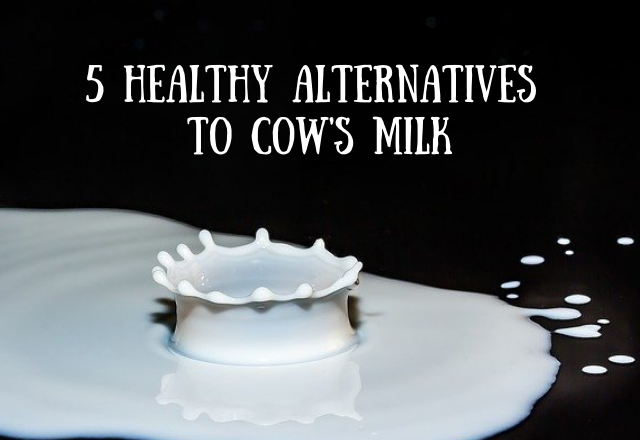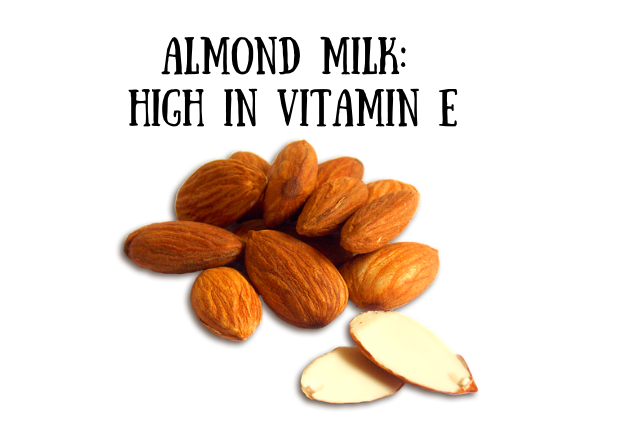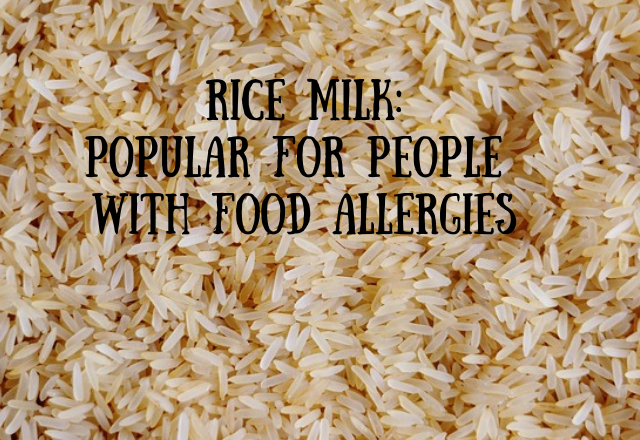Healthy Alternatives to Cow’s Milk

Expanding Your Milk Horizons with these Popular Alternatives to Cow’s Milk
While there is little doubt that milk from cows is the most popular choice. These days, the milk isle in your local supermarket has many more options than just the silver, blue or red tops of old. In fact, many of the alternatives to cow’s milk have become mainstream.
Some people have lactose intolerance, others choose alternatives to cow’s milk for health, fitness, or ecological reasons. Best of all, many of the alternative forms of milk are delicious, nutritious, and versatile.
This page will help you choose which milks to try. Almond, soy, oat, rice, and coconut milks are covered. You will find the uses, flavours, and health benefits of each below.
Alternatives to Cow’s Milk #1: Almond Milk
Almond milk is made either with both whole almonds or a combination of almond butter and water. It has a sweet taste and can have a similar creamy texture to dairy milk.
In comparison to cow’s milk, it contains less than a quarter of the calories and less than half the fat. Almond milk is low in carbohydrates. In addition, it also contains around 50% of the vitamin E you will need on a daily basis. Vitamin E is essentially a group of antioxidants that can protect the body from disease.
On the flip side, Almond milk is less concentrated when it comes to protein, fibre, and natural fats. This is due to the fact that this milk is made up of mostly water. It also contains phytic acid, that will lower the absorption of iron, zinc, and calcium. Many brands balance this by fortifying their Almond.

Alternatives to Cow’s Milk #2: Soy Milk
Soy Milk is one of the most popular alternatives to dairy milk. It can be made with either soybeans or soy protein isolate. It can be sold in sweetened, unsweetened, and flavoured varieties. In terms of natural goodness, there are many similarities between soy and dairy milk. The amount of protein in a glass of soy milk is similar to the amount in cow’s milk. Although in terms of calories, fats, and carbohydrates, it is approximately 50% lower.
Soy milk also contains isoflavones, which have been associated with a lower risk of heart disease.
Alternatives to Cow’s Milk #3: Oat Milk
Oat Milk was first developed in Sweden in the 1990’s and in its purest form is made of a mixture of oats and water. However, many manufacturers will add in extra ingredients including oils and salt. Oat milk is available in sweetened, unsweetened, and even flavoured varieties (such as vanilla and chocolate).
In terms of calories oat milk is on-par with cow’s milk. It contains about half the amount of protein and fat and around double the amount of carbohydrates. Production of oat milk is said to be good for the environment, needing just 1/15th of the water required in comparison to dairy milk. It has been claimed that Oat Milk needs less steam than and froths more favourably than cow’s milk – a perfect combination for coffee shops. It’s little surprise to see that oat milk is becoming more widely used at major coffee chains.

Alternatives to Cow’s Milk #4: Rice Milk
Rice milk is made from a variety of different rice strains, including milled white rice and brown rice syrup or starch. This alternative is said to be one of the best for individuals with any allergies or intolerance issues. Being free of soy, gluten, and nuts, those who suffer with some of the major food group allergies are worry free.
In terms of calories, rice milk is at a similar level to cow’s milk, features a lot less protein and fat, and is high in carbohydrates. Rice has a high glycaemic index, making this alternative possibly not ideal for people with diabetes. Due to the low protein content, it’s less suitable for growing children or the elderly.
Alternatives to Cow’s Milk #5: Coconut Milk
Coconut Milk is made from a combination of the white flesh in coconuts and water. The milk has a creamy texture, with a very subtle flavour of coconuts. Like rice milk, it can be ideal for those with allergies, being both soy and gluten free.
Coconut milk contains around one third of the calories of cow’s milk, around half the fat and a significantly lower amount of protein and carbohydrates. Many of the calories from coconut milk come from saturated fats which can help reduce appetite and lower blood cholesterol levels. This alternative milk doesn’t have the same nutritional value as cow’s milk – but can be ideal for those who want to reduce the amount of carbohydrates in their diet.
More Guides Covering Food, Fitness and Health:


